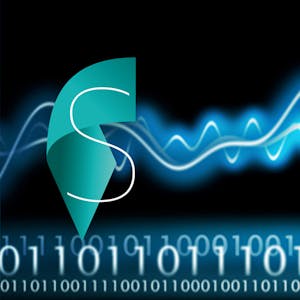Digital Signal Processing 1 Basic Concepts and Algorithms
Digital Signal Processing is the branch of engineering that, in the space of just a few decades, has enabled unprecedented levels of interpersonal communication and of on-demand entertainment. By reworking the principles of electronics, telecommunication and computer science into a unifying paradigm, DSP is a the heart of the digital revolution that brought us CDs, DVDs, MP3 players, mobile phones and countless other devices. In this series of four courses, you will learn the fundamentals of Digital Signal Processing from the ground up. Starting from the basic definition of a discrete-time signal, we will work our way through Fourier analysis, filter design, sampling, interpolation and quantization to build a DSP toolset complete enough to analyze a practical communication system in detail. Hands-on examples and demonstration will be routinely used to close the gap between theory and practice.
To make the best of this class, it is recommended that you are proficient in basic calculus and linear algebra; several programming examples will be provided in the form of Python notebooks but you can use your favorite programming language to test the algorithms described in the course.
The nature of discrete-time signals
Discrete-time signals are vectors in a vector space
Discrete-time signals can be analyzed in the frequency domain via the Fourier transform
Syllabus
Syllabus - What you will learn from this course
Week 1
Module 1.1: Digital Signal Processing: the Basics
Introduction to the notation and basics of Digital Signal Processing
Week 2
Module 1.2: Signal Processing Meets Vector Space
Modeling signals as vectors in an appropriate vector space. Using linear algebra to express signal manipulations.
Week 3
Module 1.3: Fourier Analysis: the Basics
The fundamental concepts behind the Fourier transform and the frequency domain
Week 4
Module 1.4: Fourier Analysis: More Advanced Tools
Delving deeper in the world of Fourier analysis.
FAQ
When will I have access to the lectures and assignments?
Access to lectures and assignments depends on your type of enrollment. If you take a course in audit mode, you will be able to see most course materials for free. To access graded assignments and to earn a Certificate, you will need to purchase the Certificate experience, during or after your audit. If you don't see the audit option:
The course may not offer an audit option. You can try a Free Trial instead, or apply for Financial Aid.
The course may offer 'Full Course, No Certificate' instead. This option lets you see all course materials, submit required assessments, and get a final grade. This also means that you will not be able to purchase a Certificate experience.
What will I get if I subscribe to this Specialization?
When you enroll in the course, you get access to all of the courses in the Specialization, and you earn a certificate when you complete the work. Your electronic Certificate will be added to your Accomplishments page - from there, you can print your Certificate or add it to your LinkedIn profile. If you only want to read and view the course content, you can audit the course for free.
Is financial aid available?
Yes. In select learning programs, you can apply for financial aid or a scholarship if you can’t afford the enrollment fee. If fin aid or scholarship is available for your learning program selection, you’ll find a link to apply on the description page.
Reviews
very good course, but it require some math and a brief reading of a book in signals, there are only few courses in coursera that are challenging, this is one of them, 10/10
IT WAS AMAZING, I LEARNED SO MANY THINGS!!! Great job
The math was extremely difficult. But I made it through.
I material the very challenging, but with some time and effort it can be very fun and also rewarding
